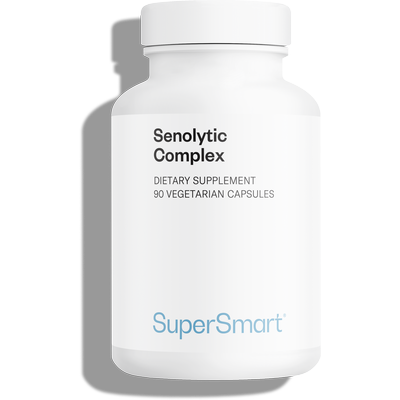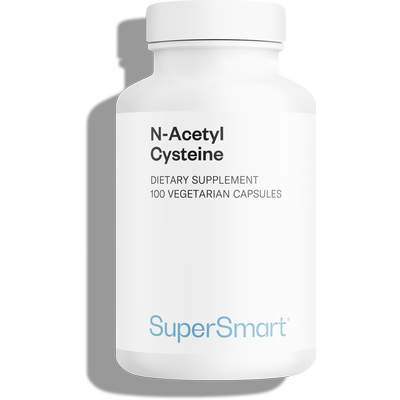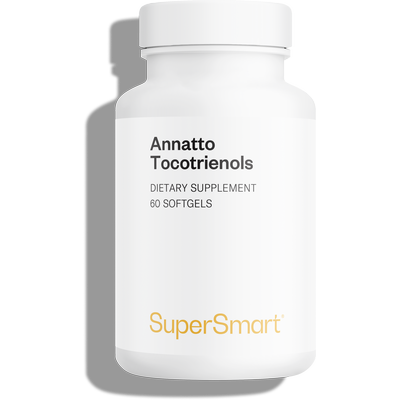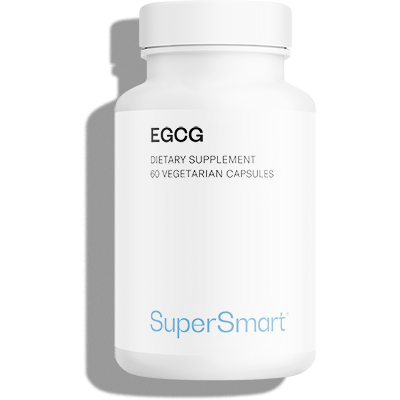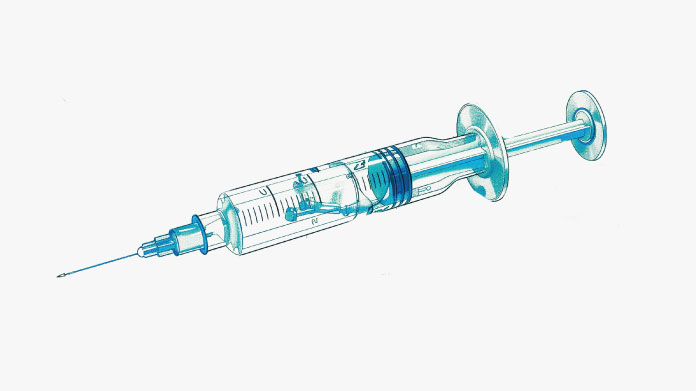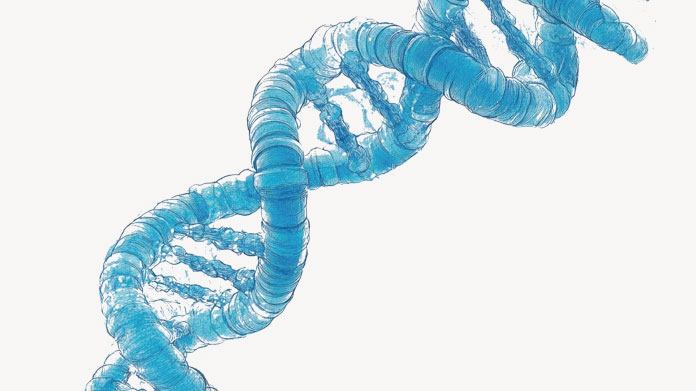AI revolutionises dietary supplements for longevity
If it is already investing in medical research, artificial intelligence is also helping to create food supplements dedicated to longevity. How is AI set to revolutionise the fight against ageing?

Longevity: artificial intelligence conquering geroprotection
Diagnostic assistance, predictive medicine, robotic surgery, development of vaccines and medicines...
In just a few decades, artificial intelligence (AI) has completely transformed the field of health.
Research into food supplements is no exception: it too is harnessing the power of ‘intelligent systems’ to isolate promising new compounds and validate their efficacy.
Imagine for a moment that AI could increase our longevity by identifying ‘geroprotective’ molecules — in other words, molecules capable of slowing down the ageing process and helping us live better for longer (1).
These molecules would, among other things, protect healthy tissues from oxidative stress and inflammation, or trigger genetic repair processes by turning on carefully selected cellular switches, known as signalling pathways.
What would once have been science fiction is now becoming reality with the advent of high-speed computer programmes that exploit biomedical artificial intelligence algorithms.
These include in silico screening (the virtual testing of molecules using AI), machine learning (the analysis of data to predict effects) and signalling pathway modelling (the simulation of cellular interactions).
While it has traditionally taken several decades to reach verdicts on possible benefits in terms of human longevity, this approach already claims to accelerate research into geroprotection by more rapidly filtering the substances likely to activate anti-ageing pathways and improving our understanding of the underlying biological processes.
In particular, these innovative technologies have made it possible to expand the class of senolytic compounds, which are responsible for detecting and eliminating senescent cells — 'stale' cells that accumulate in tissues with age, releasing pro-inflammatory messengers and precipitating the onset of age-related diseases (2).
Quercetin, a powerful flavonoid found in high concentrations in onions and capable of crossing the blood–brain barrier, is one of the most widely studied potential senolytics in neuroprotection (3).
Fisetin also deserves a mention, as it has been associated with a reduction in senescence markers in aged mouse models, particularly in adipose tissue (4).
As a precursor of NAD, a key coenzyme in cell communication, nicotinamide mononucleotide (NMN) also falls into this category (note that these three substances join forces in the Senolytic Complex synergy, which also contains decaffeinated black tea extract, vitamin C and bromelain) (5).
Anti-ageing food supplements: new substances 'validated' by AI
While artificial intelligence will increasingly assist researchers in the design of supplements, it has already validated the relevance of various substances used in the field of geroprotection.
NAC: the precursor of glutathione
N-acetyl cysteine (NAC) is a synthetic derivative of cysteine, a non-essential amino acid.
It acts as a precursor to glutathione, our main endogenous antioxidant (manufactured by our bodies), and stimulates its regeneration in its reduced, biologically active form.
Researchers suspect that NAC may modulate multiple signalling pathways involved in cell growth and arrest, programmed cell death (apoptosis) and the inflammatory response (6).
More specifically, a recent study suggests that NAC protects cells by triggering intracellular production of hydrogen biosulphide, which is correlated with increased longevity and resistance to stress in yeast, worms, flies and mice (and is found in our optimally dosed N-Acetyl Cysteine formula) (7-8).
Myricetin: a plant geroprotector
Also known as myricetol, myricetin is an organic compound from the flavonol family concentrated in various plants, including grapes, nuts and berries.
In biogerontology, this molecule is thought to interfere with the MAPK pathway, which is involved in the apoptosis of damaged cells.
It is also thought to play a role in autophagy, a cellular process that optimises cell function by recycling waste from the cytoplasm (9).
Gamma-tocotrienols: a superior form of vitamin E in combatting oxidative stress
Vitamin E helps to protect cells against oxidative stress.
In our bodies, it is concentrated in 2 main forms (of the 8 that exist): alpha-tocopherols and gamma-tocotrienols.
However, studies seem to confirm that gamma-tocotrienols have a clear advantage over alpha-tocotrienols when it comes to levels of oxidation and inflammation.
Gamma-tocotrienols are said to be able to trap reactive nitrogen species, offer superior protection of mitochondrial function and selectively inhibit certain inflammatory messengers (such as leukotrienes, prostaglandins, etc.) (10).
In supplementation, they should ideally not be combined with tocopherols, which limit their absorption (which is why Annatto Tocotrienols relies exclusively on a combination of gamma and delta tocotrienols).
EGCG: the longevity secret of green tea
Why do scientists associate regular consumption of green tea with longer life expectancy?
The explanation lies in epigallocatechin gallate, or EGCG.
Known for its positive effects on cardiovascular health, blood sugar levels and body weight management, this remarkable polyphenol is also thought to help reduce cell ageing induced by oxidative damage (11-13).
In particular, it is thought to interact with several cell surface receptors (67LR, TLR4, etc.) which mediate the signalling pathways involved in the inflammatory response, sirtuin activation, angiogenesis, cell proliferation and survival (naturally extracted from green tea, EGCG uses a high-dose formula of 455 mg for 2 capsules a day to maximise its potential) (14).
Food supplements and AI could have a bright future together
What's next for food supplements?
With the rapid development of AI, a whole new era for food supplements may be just around the corner.
While the exact form this will take remains to be seen, possibilities include:
- tailor-made formulations adapted to individual biomarkers, genetic profiles and lifestyles;
- dosages adjusted according to feedback from health monitoring apps; and
- ingredient synergies optimised by machine learning to enhance bioavailability and effectiveness.
Only time will tell!
SUPERSMART ADVICE
References
- Magon N, Chopra S, Kumar P. Geroprotection: A promising future. J Midlife Health. 2012 Jul;3(2):56-8. doi: 10.4103/0976-7800.104449. PMID: 23372317; PMCID: PMC3555024.
- Kirkland JL, Tchkonia T. Senolytic drugs: from discovery to translation. J Intern Med. 2020 Nov;288(5):518-536. doi: 10.1111/joim.13141. Epub 2020 Aug 4. PMID: 32686219; PMCID: PMC7405395.
- Deepika, Maurya PK. Health Benefits of Quercetin in Age-Related Diseases. 2022 Apr 13;27(8):2498. doi: 10.3390/molecules27082498. PMID: 35458696; PMCID: PMC9032170.
- Yousefzadeh MJ, Zhu Y, McGowan SJ, Angelini L, Fuhrmann-Stroissnigg H, Xu M, Ling YY, Melos KI, Pirtskhalava T, Inman CL, McGuckian C, Wade EA, Kato JI, Grassi D, Wentworth M, Burd CE, Arriaga EA, Ladiges WL, Tchkonia T, Kirkland JL, Robbins PD, Niedernhofer LJ. Fisetin is a senotherapeutic that extends health and lifespan. EBioMedicine. 2018 Oct;36:18-28. doi: 10.1016/j.ebiom.2018.09.015. Epub 2018 Sep 29. PMID: 30279143; PMCID: PMC6197652.
- Nadeeshani H, Li J, Ying T, Zhang B, Lu J. Nicotinamide mononucleotide (NMN) as an anti-aging health product - Promises and safety concerns. J Adv Res. 2021 Aug 11;37:267-278. doi: 10.1016/j.jare.2021.08.003. PMID: 35499054; PMCID: PMC9039735.
- Shaposhnikov MV, Zemskaya NV, Koval LA, Schegoleva EV, Zhavoronkov A, Moskalev AA. Effects of N-acetyl-L-cysteine on lifespan, locomotor activity and stress-resistance of 3 Drosophila species with different lifespans. Aging (Albany NY). 2018 Sep 20;10(9):2428-2458. doi: 10.18632/aging.101561. PMID: 30243020; PMCID: PMC6188487.
- Kabil H, Kabil O, Banerjee R, Harshman LG, Pletcher SD. Increased transsulfuration mediates longevity and dietary restriction in Drosophila. Proc Natl Acad Sci U S A. 2011 Oct 4;108(40):16831-6. doi: 10.1073/pnas.1102008108. Epub 2011 Sep 19. PMID: 21930912; PMCID: PMC3189063.
- Hine C, Harputlugil E, Zhang Y, Ruckenstuhl C, Lee BC, Brace L, Longchamp A, Treviño-Villarreal JH, Mejia P, Ozaki CK, Wang R, Gladyshev VN, Madeo F, Mair WB, Mitchell JR. Endogenous hydrogen sulfide production is essential for dietary restriction benefits. Cell. 2015 Jan 15;160(1-2):132-44. doi: 10.1016/j.cell.2014.11.048. Epub 2014 Dec 23. PMID: 25542313; PMCID: PMC4297538.
- Han SH, Lee JH, Woo JS, Jung GH, Jung SH, Han EJ, Park YS, Kim BS, Kim SK, Park BK, Choi C, Jung JY. Myricetin induces apoptosis through the MAPK pathway and regulates JNK‑mediated autophagy in SK‑BR‑3 cells. Int J Mol Med. 2022 Apr;49(4):54. doi: 10.3892/ijmm.2022.5110. Epub 2022 Mar 2. PMID: 35234274; PMCID: PMC8904074.
- Jiang Q, Im S, Wagner JG, Hernandez ML, Peden DB. Gamma-tocopherol, a major form of vitamin E in diets: Insights into antioxidant and anti-inflammatory effects, mechanisms, and roles in disease management. Free Radic Biol Med. 2022 Jan;178:347-359. doi: 10.1016/j.freeradbiomed.2021.12.012. Epub 2021 Dec 9. PMID: 34896589; PMCID: PMC8826491.
- Oyama JI, Shiraki A, Nishikido T, Maeda T, Komoda H, Shimizu T, Makino N, Node K. EGCG, a green tea catechin, attenuates the progression of heart failure induced by the heart/muscle-specific deletion of MnSOD in mice. J Cardiol. 2017 Feb;69(2):417-427. doi: 10.1016/j.jjcc.2016.05.019. Epub 2016 Jun 30. PMID: 27374189.
- Yurtseven K, Yücecan S. Exploring the Potential of Epigallocatechin Gallate in Combating Insulin Resistance and Diabetes. 2024 Dec 18;16(24):4360. doi: 10.3390/nu16244360. PMID: 39770980; PMCID: PMC11676372.
- Chen IJ, Liu CY, Chiu JP, Hsu CH. Therapeutic effect of high-dose green tea extract on weight reduction: A randomized, double-blind, placebo-controlled clinical trial. Clin Nutr. 2016 Jun;35(3):592-9. doi: 10.1016/j.clnu.2015.05.003. Epub 2015 May 29. PMID: 26093535.
- Mokra D, Joskova M, Mokry J. Therapeutic Effects of Green Tea Polyphenol (‒)-Epigallocatechin-3-Gallate (EGCG) in Relation to Molecular Pathways Controlling Inflammation, Oxidative Stress, and Apoptosis. Int J Mol Sci. 2022 Dec 25;24(1):340. doi: 10.3390/ijms24010340. PMID: 36613784; PMCID: PMC9820274.
Keywords
70 Days
Fiables y Recomendables
Como siempre estáis siempre ofreciendo alternativas naturales a los diversos problemas de Salud con un buen despliegue de información y una variada gama de productos. Y os felicito por el servicio de entrega que hacéis ahora que supera con creces el de antes.
Mariano Navarro Sanchez
70 Days
produits innovants
produits innovants, avec une composition claire
véronique de sainte marie
70 Days
Ravie et Très Satisfaite de Ma Commande…
Ravie et Très Satisfaite de Ma Commande et de Mes Commandes Très Bons Produits
Brigitte D.
70 Days
Produits fiables
Produits fiables
jacqueline
70 Days
Tout est OK 👌
Tout est OK 👌
RICHARD Bertrand
71 Days
Bestelle das Produkt seit Jahren immer…
Bestelle das Produkt seit Jahren immer wieder ist echt super, Preis Leistung ist ok könnte noch ein bisschen billiger sein aber sonst ok
SONJA Hofbauer
71 Days
Commentaire
Excellent services
DIDDY Mohamed
71 Days
Livraison rapide
Livraison rapide
devouass
71 Days
Schnelle Lieferung
Schnelle Lieferung. Gute Begleitung der Lieferung
SCHARWAECHTER Hans Juergen
71 Days
Efficace rapidement
J’ai commencé à prendre les facteurs de croissance osseuse alors que j’étais en plein accès douloureux d’ostéoporose. Mon état s’est stabilisé en quelques jours puis les douleurs ont diminué régulièrement. Je pense continuer ce remède pendant quelques mois puis 1 gélule par jour et une pause etc..
Françoise Delfour
71 Days
Rapidité de livraison avec prestataire…
Rapidité de livraison avec prestataire fiable ! Toujours impeccable.
Virginie
71 Days
Siempre buenas experiencias y cada vez…
Siempre buenas experiencias y cada vez más rápidos los envíos
Elsje Fokkelman
71 Days
Livraison rapide et en parfait état
Livraison rapide et en parfait état. Jamais d'erreur.
WUILLEMIN Sylvie
72 Days
J'ai trouvé rapidement sur le site le…
J'ai trouvé rapidement sur le site le complément qui m'était nécessaire et la livraison a été très rapide. Merci.
Client
72 Days
Je recommande ces produits
Facilité pour passer les commandes. Délais de livraison tenus. Produits de qualité. Je suis cliente depuis longtemps et très satisfaite.
Alexandre PUBERT

